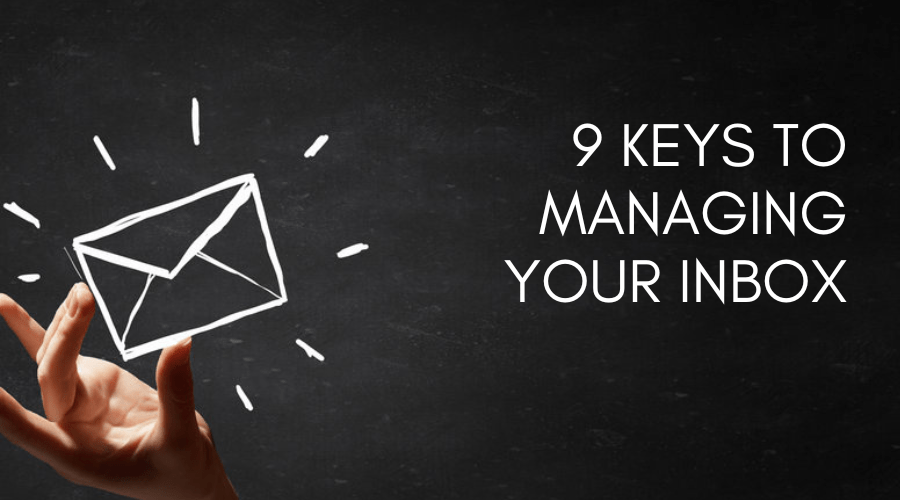My Breakthrough
For decades I have had difficulty managing emails in my inbox. It was not uncommon to have 300-500 emails needing attention in my inbox. Some emails would not be addressed for several weeks. Now I average 90-180 emails in my inbox. I respond within 2-3 business days to nearly all my emails. Here are the nine principles that have turned my inbox stress around.
1. Touch something only once. This is a best business practice in many domains. It will immediately increase your productivity by 10-30%. Do or touch something only once and do it right the first time. I open every email once and act on it at that time. To do this, I sort my inbox so the most recent are on the bottom. I set my emails so I can see the first few lines without opening an email. I’ll scan the most recent emails once in the morning and once at the end of the day to see if there is anything that is urgent. If an email is critical and urgent I will respond immediately. Benefit: Because I respond to emails in 2-3 business days, I do not get stuck in a petty email conversations that are a tremendous time-suck.
2. Don’t buy into the zero inbox philosophy. This makes your inbox your master. Sorry Steve B and Shirin T. Benefit: You determine your priorities each day rather than responding to the priorities of others.
3. Don’t start your day with emails. I look at my inbox only after I’ve accomplished several hours of meaningful work. Sometimes I’ll spend 15 minutes late morning to respond to the oldest emails. Most days I spend 45-75 minutes at the end of my day to attack emails from oldest to most recent. Knowing there are emails needing my attention motivates me to aggressively work my way down the inbox. If I need an email for further reference after acting on it, I will file it in a folder. Otherwise it is deleted. Benefit: Because my brain is in a flow, I am efficient in working through numerous emails.
4. Move stalled emails into a “Stalled” Folder. This is for emails that are not time sensitive and still require closure. This may be something I want to check on in a few weeks or something requiring my time but can wait. I check this folder at the end of the day several times a week to see if I can act on any of the emails. Benefit: I no longer have stress because I don’t see these older emails at the top of my inbox.
5. Train your colleagues and partners to text you if something is urgent. People that work with me know that if they need a response within several business days they should text me to notify me that there is a key email awaiting my attention. Benefit: People adjust and learn to give you reasonable response times.
6. Don’t look at your emails in the evenings or on weekends. This tells people you are not always “email-available.” People learn your patterns and will not expect responses from you in off-hours. Benefit: You create separation in your personal and professional life.
7. Don’t respond to a newer email until the older ones are addressed (unless someone has texted you about a time-sensitive email). Some emails require 1-2 hours of work. When I hit those, I try to address it that day or schedule it into the next few days. Benefit: I am motivated to tackle tougher emails because I know I need to get to the newer emails as quickly as possible.
8. Use voice to text. I have used Apple’s voice-to-text (hit “fn” key twice) ever since Dragon Dictate stopped working on Macs. I recommend Dragon Dictate for PC users. It pays for itself within a month. Benefit: You speak 50-100% faster than typing.
9. Unsubscribe. I subscribe to a variety of emails to stay informed as well as learn new skills. If after 6-8 emails I have not benefited or learned enough about an organization or product, I unsubscribe (with an affirmation if possible). Benefit: You curate your inbox with content that matters and don’t waste valuable seconds on irrelevant emails.
______________________


Clyde, this is all really good advice that you don’t hear in the usually inbox blogs. Thanks for taking the time to share your lessons learned with us.
You are welcome Chuck!
That’s some good advice right there
Shukran habibi!
Very helpful. Thank you.
You are welcome!
Helpful, practical input. Many thanks!